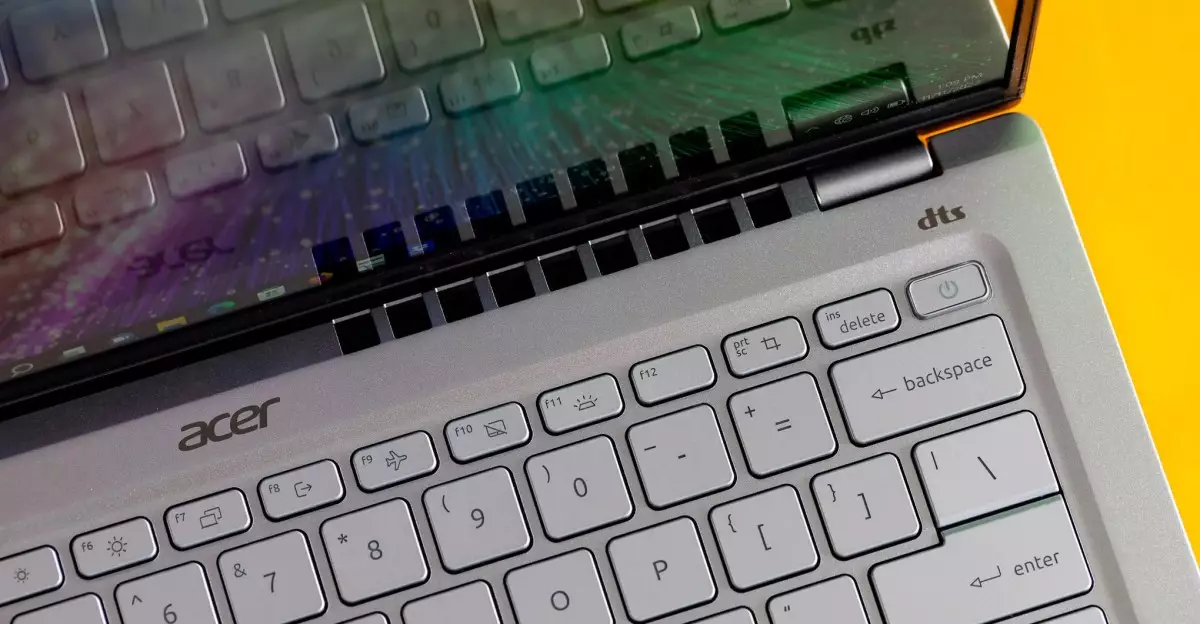The ongoing trade tensions between the United States and China have created significant ripples in the tech industry, especially regarding the pricing of laptops and computers. Recently, Jason Chen, the CEO of Acer, openly voiced his concerns about a potential price increase for laptops due to tariffs imposed by the U.S. government. This increase is projected to be around 10% and serves as an indicative trend that many consumers could see reflected in their next laptop purchase.
Chen attributes this expected price increase directly to President Trump’s implementation of a 10% tariff on goods imported from China. He pointed out that although larger tech firms have largely refrained from discussing their pricing strategies in light of these tariffs, Acer has made the strategic decision to increase prices, emphasizing the inevitability of the impact from these new trade regulations. As consumers brace for this change, the question arises: Will other tech competitors follow suit, or seize the opportunity for price gouging?
In Chen’s remarks, while he acknowledged a default increase of around 10%, he also cautioned that some companies may exploit the situation and impose even steeper hikes. This apprehension is justified, as historically, businesses have occasionally taken advantage of regulatory changes to raise prices beyond what would seem reasonable. Chen’s implications suggest that consumers might see a variance in pricing strategies, with some companies potentially opting for gains at the expense of the average buyer.
The competitive landscape complicates matters. Major manufacturers like Dell, HP, Lenovo, and even Apple have vast supply chains entrenched in China. Prior decisions to establish manufacturing in more cost-effective locations have been limited, meaning they too could be susceptible to the weight of tariffs. The industry-wide silence from these giants on responding to Acer’s announcement adds an air of uncertainty, leaving consumers on edge about how much their favorite tech products might actually cost in the near future.
Acer’s Strategic Pivot
Interestingly, Acer’s proactive approach to relocate desktop manufacturing to locations outside of China during previous tariffs hints at a broader shift to reconsider supply chains entirely. This flexibility could benefit the company by reducing its vulnerability to future tariffs while also providing some leverage against potential price inflation. Chen has even hinted at possibly shifting laptop manufacturing away from China, with U.S. manufacturing presenting itself as a viable option, although this move would require time and significant investment.
Meanwhile, smaller companies like Framework have indicated that their modular laptops may escape tariff impacts due to the sourcing of components from Taiwan. This contrasts sharply with the situation of larger corporations, showing a distinct variation in how different firms are navigating the trade complexities.
As the potential price hikes come into play, consumers and businesses alike must remain vigilant. The interplay of tariffs, market competition, and production locations signifies not only a shift in pricing strategies but also highlights the delicate balance firms must maintain in the face of economic pressures. While it remains to be seen how the broader landscape will unfold, it is clear that the tech industry’s future pricing will be heavily intertwined with trade policies and manufacturing decisions.
Ultimately, Chen’s predictions serve as a critical reminder that as gamers, tech enthusiasts, and everyday users, we are all part of a larger economic machine that is deeply interconnected, and the repercussions of policy decisions will reverberate throughout the marketplace for time to come.


Leave a Reply